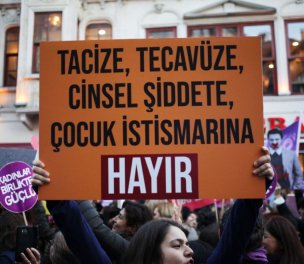Photo: Sora Shimazaki/Pexels
Click to read the article in Turkish
Amnesty International said yesterday (September 16) that the fourth judicial package failed to bring Turkey's laws in line with international human rights law.
Prepared as part of the government's Human Rights Action Plan, the package passed the parliament on July 8.
The amendments introduced in this package "rather at the edges of a system marked by the deepening erosion of independence of the judiciary," Amnesty said.
"Unless legislative and judicial reforms bring about concrete measures to ensure an independent and impartial judiciary, this latest judicial package will represent nothing more than cosmetic changes, thus failing to fundamentally reform the country's deeply flawed judicial system.
"The 4th Judicial Package fails to address the most significant and structural issues affecting human rights protection and
does not provide concrete measures to reverse the deep erosion of human rights in Turkey."
Violence against women
The judicial package amends four articles of the Turkish Penal Code about crimes committed against spouses, making them applicable to ex-spouses as well. The amended articles concern the crimes of "intentional killing," "intentional injury," "torment" and "deprivation of liberty."
"These amendments limit the applicability of aggravating circumstances to instances of violence perpetrated by former spouses," said Amnesty.
"The amendment does not reflect a gender-based perspective to the issue of violence against women and domestic violence but associates the aggravating factors with the institution of the family and marriage, excluding women who remain outside the family or are not married."
Recommendations
Any judicial reform initiative that does not aim to restore judicial independence will not resolve the systemic problems of human rights protection in the country, according to Amnesty.
"In order to eliminate root causes of the violations of human rights safeguarded by the ECHR and other international
human rights instruments to which Turkey is legally bound, Amnesty International calls on the Turkish authorities to urgently take concrete measures to ensure the promotion and protection of human rights including by:
• Refraining from interfering in criminal proceedings to enable members of the judiciary to apply basic principles of law;
• Restoring a judicial system that guarantees the respect for everyone's fundamental rights and freedoms in a fair and independent manner;
• Bringing the composition of the Council of Judges and Prosecutors, including through constitutional changes, in line with European standards in order to ensure it is free from undue interference by the government;
• Ensuring the implementation of the judgments of the ECtHR and in particular immediately and unconditionally releasing Osman Kavala and Selahattin Demirtaş from their arbitrary detention;
• Bringing all problematic provisions in the Anti-Terrorism legislation and other relevant laws that are currently used to restrict the fundamental rights of people in Turkey in line with international human rights law and ECtHR's case law;
• Ensuring that pretrial detention is a measure of last resort as acknowledged in the package and ending the routine use of arbitrary detention and prosecution of politicians, activists, journalists, human rights defenders and others solely for peacefully exercising their rights to freedom of expression, association and peaceful assembly;
• Ensuring effective implementation of protective and preventive measures for victims of domestic violence and of sanctions against perpetrators and the application of the provisions of Law No 6284. (AS/VK)






